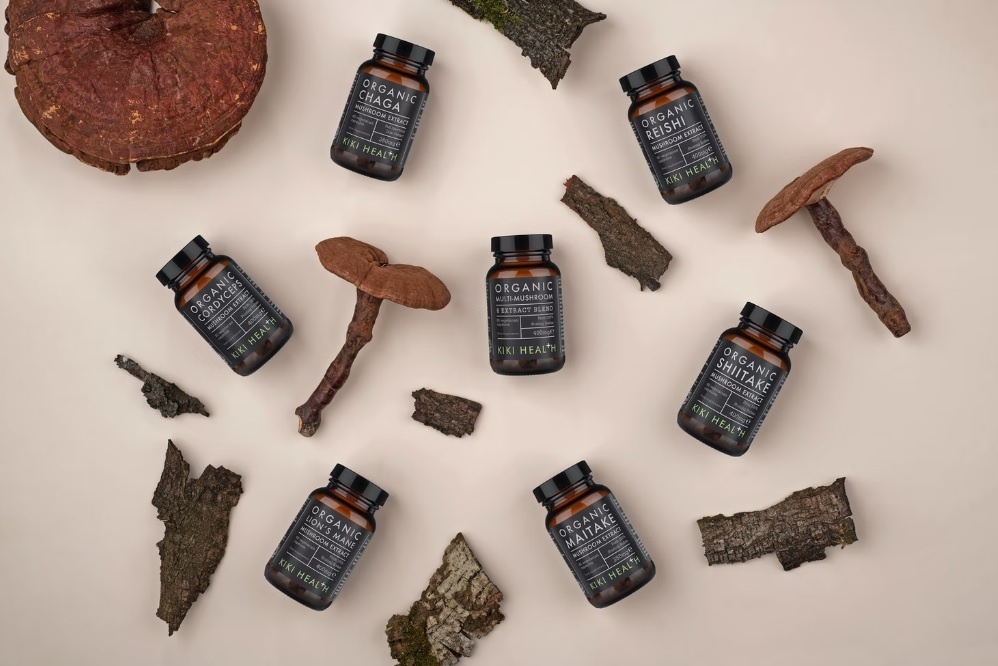Mushrooms are truly one of the most fascinating organisms. Growing inconspicuously in the most unlikely places, they have managed to secure a place in our kitchens for millennia.
According to research by Li, Tian et. al., there are over 2,189 species of edible mushrooms, out of these, 2,006 can be safely consumed. Of course, not all mushrooms are alike. Some taste great and can be a great addition to a meal.
Some mushrooms can even be hallucinogenic in nature, offering psychedelic trips to the user. In this article, we will be exploring a certain type of fungi that is widely known for its medicinal and health benefits – the lion’s mane mushroom.
What is Lion’s Mane Mushroom?
Lion’s mane mushroom is an edible and medicinal mushroom that has been used across various cultures for a variety of health benefits. The curious name comes from its appearance of white, frilly tendrils.
Traditionally, Chinese medicine has used lion’s mane mushrooms for dealing with disorders like insomnia, toning the spleen, and nourishing “Yin” energy and blood.
Similarly, the Japanese have a long history of using this mushroom to enhance brain function and promote nerve growth.
When cooked, lion’s mane is said to have the taste and texture of crab or lobster. As a result, it is often called the “Seafood mushroom”. When consumed in its natural state, it has a mild, slightly sweet taste, but when cooked, the flavor becomes more pronounced.
Due to its porous structure, it tends to absorb other ingredients well and can become an extremely flavorful addition to your meals.
Lion’s Mane As a Health Supplement
Perhaps one of the most common uses of this mushroom is as an ingredient in health supplements.
Lion’s mane has been known to help against conditions like dementia. Animal studies have also indicated that it can help people with Alzheimer’s disease and other memory-related disorders.
The polysaccharides and beta-glucans in lion’s mane mushrooms are said to help with the immune system. As a result, they are also used in many mushroom immune supplement options. According to a study by Dilling, Chaoqun, et. al., there exist certain proteins in this mushroom that assist the good bacteria in our gut and strengthen immunity.
While lion’s mane has an excellent reputation amongst users, there aren’t as many studies with human subjects as we would like to see.
Regardless, its popularity shouldn’t be surprising. Health and wellness gurus across the world have always sworn by the power of mushrooms. In an interview with The Guardian, Nicholas Money, a professor of biology at Miami University, said that mushrooms possibly contain ‘remarkable properties.’
How Does One Consume Lion’s Mane Mushroom?
If the benefits seem attractive enough for you to want to give these mushrooms a try, you may be wondering how to consume them.
Well, there are a variety of methods. You can mix it into a drink such as coffee, a smoothie, or even plain water. Just stir the powdered form of lion’s mane until it has completely dissolved. You can also mix it into your food as a cooking ingredient. Lion’s mane-infused muffins, brownies, and other baked items are great options to try.

Alternatively, you can find capsules that you can swallow with water.
Lastly, many natural focus supplements also contain lion’s mane, and you can readily find them online or in health and wellness stores.
Core Culture states that these supplements can reduce your appetite, so keep that in mind if you are on a specific diet.
What Side Effects Should You Be Aware of?
As with any substance that offers health benefits, there is often the danger of side effects. The main issue with lion’s mane is that it hasn’t been studied extensively. That means the side effects can be unpredictable and vary from person to person.
That said, lion’s mane does seem to affect the way blood clots. Thus, if you have a heart condition and are on any anti-clotting medicines, it’s probably best to avoid this mushroom.
Other side effects include more predictable reactions like rashes, abdominal pain, and nausea.
Conclusion
Mushrooms have so much untapped potential that can help change our lives for the better. We are still in the early stages of seeing society become more open to unconventional items like mushrooms.
Sure, they have had a following even in the 60s, but it’s always been a niche group of people. There is still a lot of stigma around mushrooms, and they tend to be viewed as some sort of ‘hippy drug.’
This generalization overlooks the fact that only certain mushrooms contain psychoactive substances. Options like lion’s mane only contain bioactive compounds like the previously mentioned erinacines and hericenones.
Hopefully, more people start to open up to the idea of supplementing their lives with the health benefits that these fascinating mushrooms provide
